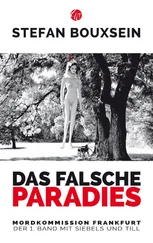Stefan Bachman - The Peculiar
Здесь есть возможность читать онлайн «Stefan Bachman - The Peculiar» весь текст электронной книги совершенно бесплатно (целиком полную версию без сокращений). В некоторых случаях можно слушать аудио, скачать через торрент в формате fb2 и присутствует краткое содержание. Жанр: Фэнтези, Детективная фантастика, на английском языке. Описание произведения, (предисловие) а так же отзывы посетителей доступны на портале библиотеки ЛибКат.
- Название:The Peculiar
- Автор:
- Жанр:
- Год:неизвестен
- ISBN:нет данных
- Рейтинг книги:5 / 5. Голосов: 1
-
Избранное:Добавить в избранное
- Отзывы:
-
Ваша оценка:
- 100
- 1
- 2
- 3
- 4
- 5
The Peculiar: краткое содержание, описание и аннотация
Предлагаем к чтению аннотацию, описание, краткое содержание или предисловие (зависит от того, что написал сам автор книги «The Peculiar»). Если вы не нашли необходимую информацию о книге — напишите в комментариях, мы постараемся отыскать её.
The Peculiar — читать онлайн бесплатно полную книгу (весь текст) целиком
Ниже представлен текст книги, разбитый по страницам. Система сохранения места последней прочитанной страницы, позволяет с удобством читать онлайн бесплатно книгу «The Peculiar», без необходимости каждый раз заново искать на чём Вы остановились. Поставьте закладку, и сможете в любой момент перейти на страницу, на которой закончили чтение.
Интервал:
Закладка:
“Tell Daddy I’m sorry,” she whispered. “Tell Daddy I’m sorry.” And then the dark shape slammed into her and she doubled over, the breath knocked from her lungs.
When she raised her head again, her eyes were sharp and black. Faery eyes.
Bartholomew ran.
“Vekistra takeshi! Vekistra!” the lady in plum shrieked from behind him. “Take the tenth child!”
It was the voice of the creature from the attic. The hidden one that Bartholomew hadn’t been able to see. And it wasn’t quiet and cold anymore. It was shrill, desperate.
Bartholomew burst into the house. The instant before the door slammed shut, he saw the lady in plum swoop down to the pavement, bottle in hand, dribbling black liquid onto the cobbles. Then the door smashed into its frame and he was running up the stairs and into the flat. He pushed that door closed, fingers slipping on the bolt. Footsteps. Someone was in the stairwell, feet booming in the silence. Bartholomew reached for the key, rammed it into the lock. Where can I go? The scream of “ Take the tenth child” was still ringing in his ears, awful and final. The lady in plum was not going to lead him gently away, as she had the Buddelbinster boy. She was not whisking him off to some enchanted halls of light and finery. She was going to kidnap him.
“Hettie?” Bartholomew cried, racing to her bed. “Hettie, wake up. Wake up! They’re going to come in!” He threw open the cupboard door, poking and jabbing at the sheets to wake her.
Hettie was not there.
He let out a wail and ran to his mother’s bed. He shook her, beating his fists against her back. “Mother!” he cried, desperate tears biting his eyes. “ Mother, wake up!” She didn’t even stir.
The footsteps had reached the passage. They were approaching the door, slowly, deliberately. Why won’t she wake?
He would open the window. He would throw it wide and yell until the entire faery district was startled from their beds. But it was too late. A tiny c lick sounded from the door. The lock. Someone had opened it.
Bartholomew edged away from his mother’s motionless form. His fingers closed around the iron handle of the coal scuttle. He drew it up, hugging it to himself. It was so heavy. If he had to, he could dash the faery’s brains out with it. Flattening himself against the wall behind the potbellied stove, he waited.
The door to the flat yawned open. Slowly, slowly, it revealed a figure silhouetted against the dim light from the passage. The figure had goat legs and a ruined hat. Two hot-coal eyes glowed under its brim. They slid across the room, back and forth, back and forth. They paused. They turned back to the potbellied stove. It can’t know, it can’t know. .
“Hello, leetle boy.”
With a great raging sob, Bartholomew leaped from behind the stove, brandishing the coal scuttle as high as he could lift it. The raggedy man grinned. A savage bright flash flew from his eyes, sizzled across the room, and struck Bartholomew in some tender spot deep inside his skull. His vision stuttered out. He felt himself standing, blind and clumsy, in the middle of the floor. Somewhere far away he heard wings flapping, dark wings whirling, and the growl of icy wind. His body was so heavy, pulling him down. Hettie, he thought, before he collapsed. Hettie was the one they wanted. And Hettie is gone.
The scuttle slipped from his hand. It clanged against the floor like a thunderclap. But no one in the whole house woke.
CHAPTER XII
Mr. Jelliby was not the sort of man to make hasty decisions. In fact, he wasn’t really the sort of man to make decisions at all. But when the mechanical eye of the faery butler hissed and locked itself onto the bird in Mr. Jelliby’s hand, and when the faery smiled that hungry smile at him and said, “Oh! Fancy seeing you here,” as if they were the oldest of friends, Mr. Jelliby made a very hasty, very rash decision. He ran.
Plunging the bird into his trouser pocket, he dashed out of the shop and down the narrow corridor toward the stairs. Shouts rang out behind him. The bells above the shop door began to jangle violently. Down the stairs he leaped, four at a time, barely avoiding the decrepit old man who was making his way upward.
When Mr. Jelliby burst out into the swirling air of Stovepipe Road, he stopped dead.
Oh, no. A massive black carriage, still as a coffin, was parked across the mouth of the street, blocking his escape. Two mechanical horses stood at its front and pawed the cobblestones. Sparks flew from their metal hooves.
Mr. Jelliby ran the other direction, hurtling down a lane and into an alley. He made his way through a warren of tiny streets, sleeve-over-mouth to keep from gagging on the fumes, and as soon as he could, doubled back toward the wider thoroughfare. He arrived just as the seven o’ clock bells were tolling the end of a workday. Laborers from the foundries and breweries were pouring out of doorways, clogging the streets. He fought his way through them, up the stairs toward the elevated railway station.
A steam engine was just pulling away as he mounted the platform, its whistle blowing. He swung onto the wrought-iron porch of the final wagon and collapsed, breathless, against the railing. Sweat dripped into his eyes, but he blinked it away. The streets below were packed, row upon row of weary, grimy bodies trudging toward lodgings or public houses, eyes hooked to the ooze beneath their boots. There was no faery, pale as death and cypress-slender, moving among them.
The last wagon had just begun to rumble around a bend when Mr. Jelliby caught sight of the black carriage, parting the crowds like a lustrous boat in dirty water. It paused briefly at a crossroad. Then it slid away, disappearing into the city.
Mr. Jelliby took a long, slow breath. Then another, and another, but nothing could loosen the panic that had fastened itself to his lungs. The faery butler had seen him. He had seen him with Mr. Lickerish’s messenger bird in his hands, no doubt the very bird the faery butler had been sent to inquire about. If they had thought he was a spy before, they would be sure he was now. And a thief, too. And something occurred to Mr. Jelliby, then, that made him feel very ill: He had already decided to save Melusine, and stop the faery politician’s murderous ways, and deliver England from whatever dastardly plans were under way. But he hadn’t wanted to be noticed while he did it. He hadn’t wanted to be frowned at, or laughed at, and he most certainly hadn’t wanted to seem any different from the other gentlemen of Westminster. Only that was not the way things worked. He saw that now. Westminster gentlemen did not chase clockwork birds through city streets. They did not hunt down killers, or help people. Mr. Jelliby had. And there could be no turning back now.
The faery butler would tell Mr. Lickerish what he had seen. Mr. Lickerish would understand instantly. He would see that Mr. Jelliby knew things no human was supposed to know. He would see that Mr. Jelliby was intent on meddling. And what would he do? Oh, what would that stone-hearted faery do? Mr. Jelliby shivered and hunched into the ash-riddled wind.
He arrived back at Belgrave Square just before nightfall, bedraggled and besmirched with all the grime that comes from riding at thirty miles per hour among London’s chimneys. Slamming the front door behind him, he barred it, chained it, searched out the key from inside the shade of a gas lamp and locked it. Then he leaned against it and shouted, “Brahms! Brahms! Close the shutters all the way up! And move all the furniture over the windows. Do it now! Ophelia?”
No one answered.
Читать дальшеИнтервал:
Закладка:
Похожие книги на «The Peculiar»
Представляем Вашему вниманию похожие книги на «The Peculiar» списком для выбора. Мы отобрали схожую по названию и смыслу литературу в надежде предоставить читателям больше вариантов отыскать новые, интересные, ещё непрочитанные произведения.
Обсуждение, отзывы о книге «The Peculiar» и просто собственные мнения читателей. Оставьте ваши комментарии, напишите, что Вы думаете о произведении, его смысле или главных героях. Укажите что конкретно понравилось, а что нет, и почему Вы так считаете.












